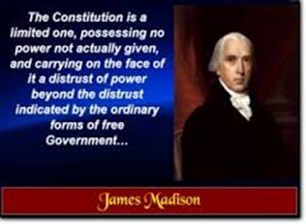In 1776, the Declaration of Independence proclaimed that everyone is endowed with “unalienable Rights.” Years later, the Bill of Rights elaborated on those rights.
Subsequently, the rights of many (although not all, tragically and atrociously) Americans were secured to a greater degree than in any polity in human history. The results were spectacular and gave “rights” a luster that has endured to this day.
But the word “rights” has long since been hijacked by enemies of the original idea of rights. To steal the prestige earned by that idea, they have hitched the word to their favorite government-granted entitlements. They champion “rights” to welfare, health care, education, internet access, etc.
But, this is far removed from what the American founders meant by rights. They meant what their philosophical hero John Locke meant. So, let’s explore what Locke meant by rights.
In his Two Treatises of Government, Locke wrote that, “every man has a property in his own person: this no body has any right to but himself.”
In modern usage, “property” refers to external possessions. But in Locke’s time, the word encompassed anything that is “properly” owned by someone, including one’s own body. For every human being, the exclusive use of his own “person” or body is “properly his,” as Locke wrote. This later became known as the doctrine of “self-ownership.”
Locke then posited that when an individual works on previously un-owned natural resources, he appropriates those resources: i.e., makes them his property. Locke referred to such property in external goods as an individual’s “possessions” or “estate.” An individual can transfer ownership of any of his possessions to anyone else, either in exchange or as a gift.
All of the other rights that Locke posited in his Two Treatises (the right of self-defense, the right of revolution, etc.) are extrapolations of these two fundamental rights: the right of self-ownership and the right to own external possessions, either through original appropriation (or “homesteading”) or through being the recipient in a voluntary transfer of ownership.
Thus, for Locke, and by extension for the American founders, “rights” are ultimately a matter of ownership or “property” in the original broader sense. Individuals have rights to their “lives, liberties and estates, which I call by the general name, property,” as Locke wrote.
This means that “no one ought to harm another in his life, health, liberty, or possessions…” To deprive someone of life by murder, health by assault, or liberty by coercion would violate that victim’s “property in his own person.” And to deprive someone of possessions by theft would violate the victim’s “estate,” i.e., property in those possessions.
This is what the authors of the Declaration of Independence were referring to when they proclaimed the “unalienable Rights” to “Life, Liberty, and the pursuit of Happiness.” And this is what the framers of the Bill of Rights were elaborating upon when they drafted the first ten amendments of the US Constitution.
By “rights,” they did not mean government-granted entitlements. Indeed they would have rejected such entitlements as incompatible with true rights. Government can only enforce someone’s phony “right” to welfare, health care, education, or internet access by depriving someone else of their genuine rights: either by seizing their earnings or commandeering their labor.
And such rights violations only serve to hamper much more effective—and rights-respecting—private efforts to abundantly provide goods and services like material security, health care, education, and internet access.
It was respect for genuine rights, not the provision of government-granted entitlements, that made the American experiment the wonder of the world. And only a re-embrace of rights will make America exemplary again.
This essay was originally published on Dan Sanchez’s Substack publication “Letters on Liberty.”
Dan Sanchez
Dan Sanchez is the Director of Content at the Foundation for Economic Education (FEE) and the editor-in chief of FEE.org.
This article was originally published on FEE.org. Read the original article.


 n of individuals, a completely different constitutional picture emerges [from the one seen today by “Progressives”]. Because those in government are merely a small subset of the people who serve as their servants or agents, the “just powers” of these servants must be limited to the purpose for which they are delegated. That purpose is not to reflect the people’s will or desire – which in practice means the will or desires of the majority – but to secure the pre-existing rights of We the People, each and every one of us.
n of individuals, a completely different constitutional picture emerges [from the one seen today by “Progressives”]. Because those in government are merely a small subset of the people who serve as their servants or agents, the “just powers” of these servants must be limited to the purpose for which they are delegated. That purpose is not to reflect the people’s will or desire – which in practice means the will or desires of the majority – but to secure the pre-existing rights of We the People, each and every one of us.